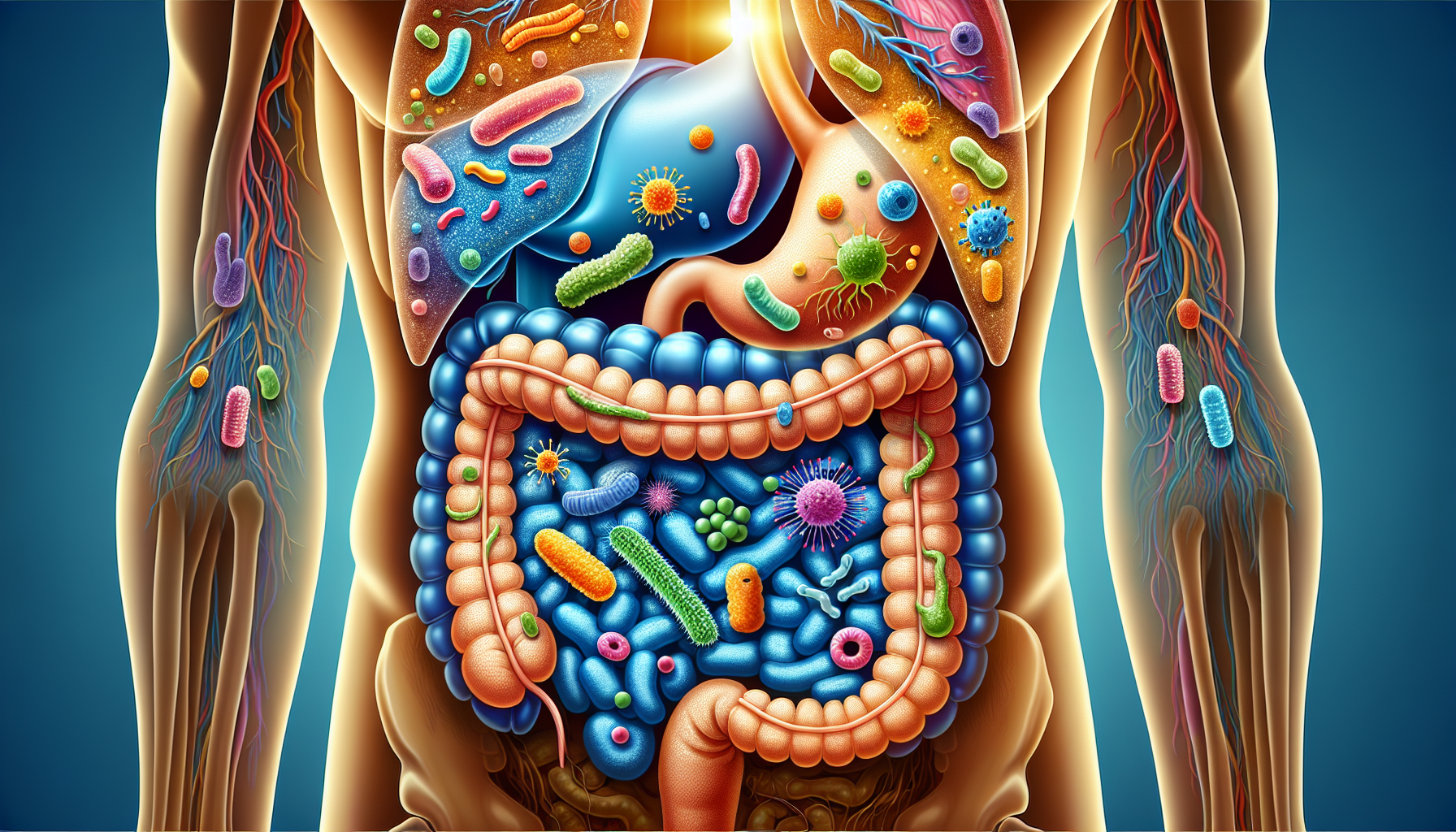The journey to effective weight management is a complex interplay of various factors including diet, exercise, genetic predisposition, and one often overlooked aspect – digestive health. The digestive system is a central hub that not only processes the food we eat but also plays a critical role in maintaining overall health, including weight management. In this comprehensive exploration, we’ll delve into the intricate ways in which digestive health impacts your ability to manage weight and how you can harness this knowledge for better health outcomes.
Understanding the Digestive System and Its Role in Weight
The digestive system is a marvel of biological engineering, meticulously breaking down the foods we consume into their constituent nutrients, which our bodies can then absorb and utilize. When the digestive system is functioning optimally, it efficiently metabolizes carbohydrates, proteins, and fats, which is essential for maintaining a healthy weight. However, when the system is disrupted, it can lead to weight gain or difficulty in losing weight.
One of the key components of digestive health influencing weight is the gut microbiota – trillions of bacteria residing in the gastrointestinal tract. These microorganisms play a significant role in how our bodies process food and extract calories. A healthy balance of these gut bacteria has been linked to a leaner physique, while an imbalance, known as dysbiosis, is associated with obesity and other metabolic disorders.
The Connection Between Gut Health and Metabolic Rate
The gut microbiota can affect the body’s basal metabolic rate – the rate at which the body uses energy while at rest. Certain bacteria in the gut can help increase energy expenditure, thus aiding in weight loss, while others may slow down the metabolism, leading to weight gain. For more information on how to maintain a healthy gut flora, the article Exploring the Role of Digestive Enzymes in Gut Health offers valuable insights.
The Impact of Digestion on Hormones and Appetite Regulation
Digestive health also influences the secretion of various hormones that regulate appetite and satiety. For instance, the gut produces hormones such as leptin and ghrelin, which signal the brain about hunger and fullness. An unhealthy digestive system can lead to the improper release of these hormones, causing overeating or unsatisfactory feelings of fullness after meals.
Nutrient Absorption and Weight Control
Efficient absorption of nutrients is another crucial aspect of digestive health that affects weight management. When the digestive system is compromised, it may result in malabsorption of nutrients, which can lead to deficiencies and a consequent increase in food intake as the body tries to compensate for the lack of nutrients.
Fiber’s Role in Digestive Health and Weight Management
Dietary fiber is a key player in digestive health and weight management. High-fiber diets have been shown to enhance satiety, reduce appetite, and contribute to a healthy gut microbiota. The article Connection Between High-Fiber Diets and Colon Health discusses the importance of fiber in maintaining both digestive and weight health.
Strategies for Improving Digestive Health for Weight Management
To harness the weight management benefits of a healthy digestive system, consider incorporating the following strategies:
Probiotics and Prebiotics
Probiotics are beneficial bacteria that can help restore the natural balance of gut flora, while prebiotics are dietary fibers that feed these beneficial bacteria. Including a variety of fermented foods and fiber-rich fruits and vegetables in your diet can support your gut microbiome.
Regular Physical Activity
Exercise is not only crucial for burning calories but also for promoting a healthy digestive system. Physical activity can enhance gut motility and diversity of gut microbiota, which in turn can aid in weight management.
Mindful Eating and Stress Management
Stress can negatively impact digestive health by altering gut motility and microbiota. Practices such as mindful eating and stress-reduction techniques like yoga can improve digestion and thus support weight management efforts. The article The Role of Yoga in Improving Digestive Function provides a deeper understanding of this relationship.
Adequate Hydration
Water is essential for digestion as it helps break down food and absorb nutrients. Staying well-hydrated also helps prevent constipation, which can affect gut health and weight.
Getting Enough Sleep
Sleep patterns have a direct effect on digestive health, which in turn influences weight management. Lack of sleep can disrupt the balance of gut bacteria and hormones involved in metabolism and appetite regulation. For more on this, consider reading The Impact of Sleep Patterns on Digestive Health.
In addition to these strategies, it is important to address any underlying digestive disorders that may be contributing to weight management challenges. Conditions such as irritable bowel syndrome (IBS), celiac disease, and gastroesophageal reflux disease (GERD) can all impact your ability to maintain a healthy weight. Seeking medical advice and tailored treatment plans is essential in such cases.
External Resources for Further Reading
- International Foundation for Gastrointestinal Disorders – Offers comprehensive information on various digestive disorders and their management.
- The Gut Microbiota for Health Expert Panel – Provides insights into the latest research on gut microbiota and its role in health and disease.
- Academy of Nutrition and Dietetics – Offers resources on diet and lifestyle for optimal digestive health.
- The American Gastroenterological Association – A professional organization dedicated to the science and practice of gastroenterology, with resources for both patients and healthcare providers.
By understanding the complex relationship between digestive health and weight management and implementing strategies to promote a healthy digestive system, individuals can make significant strides towards achieving and maintaining their desired weight. It is not merely about what we eat but also about how our bodies handle what we eat. A holistic approach that includes diet, exercise, stress management, and sleep hygiene can go a long way in supporting both digestive health and weight management goals.
Conclusion
Digestive health is a critical yet often neglected aspect of weight management. By focusing on creating a balanced gut microbiota, ensuring effective nutrient absorption, and adopting healthy lifestyle habits, you can significantly influence your body’s ability to manage weight. Remember, a healthy gut is not just about avoiding discomfort—it’s a cornerstone of overall well-being and a vital partner in your weight management journey.



